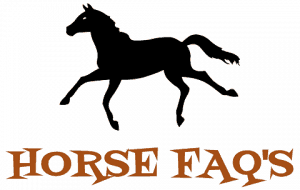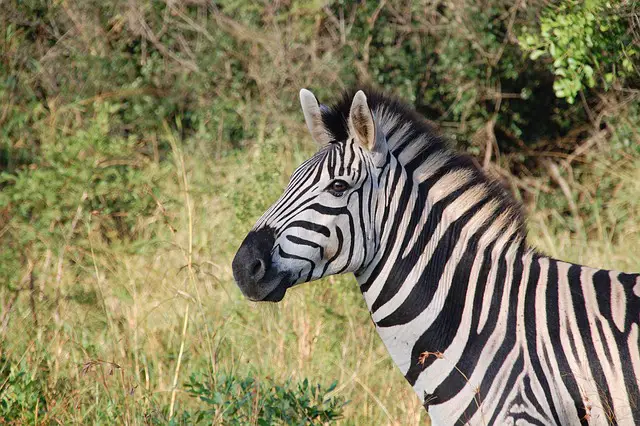Zebras and horses may appear similar at first glance, but they are actually two distinct species with unique characteristics. While both animals belong to the Equidae family, horses are classified as Equus ferus caballus and zebras as Equus quagga.
These differences go beyond just their scientific names, as zebras and horses display distinct physical traits, behaviors, and abilities.
In this article, we will delve into 11 fascinating facts about zebras and horses. We will explore the differences in their diets, speed, and physical features, as well as their ability to create hybrids and crossbreeds.
By the end of this article, you will have a better understanding of these magnificent creatures and the traits that set them apart from one another.
11 Fascinated Facts
1. There are three main types of zebra: Plains Zebra, Mountain Zebra, and Grevy’s Zebra.
2. Zebras can be bred with horses to create hybrids called Zorses or Zonies.
3. Zebras can also be crossed with donkeys to create hybrids called Zonkeys.
4. Zebras and horses have different numbers of chromosomes, with horses having 64 and zebras having 32-46 depending on the species.
5. Horses are easier to tame than wild zebras due to their flight instinct.
6. Zebras look more like donkeys than horses, with a flat back, mohawk-like mane, and short, ratty tail.
7. All zebras are white with black stripes.
8. Zebras can be ridden like horses, but must be trained with caution due to their potentially dangerous behavior.
9. Zebras can be tamed, but the process is more difficult than with horses and should be started when the zebra is a foal.
10. Zebras and horses have similar diets and can often live off the same type of food in captivity.
11. Zonkeys can be ridden like horses and can do all the things any horse can do with the right training and temperament.
List of Differences Between Zebras and Horses:
1. Size: Zebras are smaller and lighter than horses, with a height ranging from 3.8ft to 5.25ft and a weight of up to 900lbs. Horses are larger, with a height ranging from 5ft to 7ft and a weight of up to 1,200lbs.
2. Speed: Zebras can run at a top speed of 40mph, while horses can run even faster, reaching a maximum speed of 55mph.
3. Personality: Zebras are more aggressive and stubborn than horses, making them harder to tame and ride.
4. Coloration: Zebras have a distinct black and white striped fur pattern for camouflage, while horses have a one or two-color coat that lacks the distinct pattern.
5. Mane: Zebra manes are thick, scruffy, and grow straight outward, while horse manes are long, thick, and flowy.
6. Ear Length: Zebras have longer and more rounded ears compared to the shorter and more angular ears of horses.
Bonus: Zebras and horses can interbreed, producing hybrids called zorses or hebras.
Different Species
While zebras and horses are both members of the Equidae family, they are distinct species. The chromosomal differences between zebras and horses are evident in their hybrids.
Zonkeys, a cross between a zebra and a donkey, are often sterile due to their parents having different numbers of chromosomes. This genetic incompatibility can also occur with zorse hybrids, which are the offspring of a horse and a zebra.
While some may find the idea of owning a zebra as an exotic pet alluring, it is important to note that zebras are not domesticated animals. Their wild nature makes them challenging to train and handle, even for experienced trainers.
Additionally, zebras are facing threats to their existence in the wild due to habitat loss and hunting. Conservation efforts are crucial to the survival of these unique and beautiful creatures.
Hybrids and Crossbreeds
Hybrids and crossbreeds between members of the Equidae family have been created, resulting in unique combinations of physical traits and temperaments.
Zebra hybrids, such as Zorses and Zonys, inherit traits from both their zebra and horse parents. However, breeding challenges arise due to the different numbers of chromosomes between horses and zebras, leading to most horse/zebra crosses being sterile.
Zonkeys inherit the donkey coloration with stripes from the zebra parent, while Zorses come in all colors, including solid colors and paints.
Despite the fascinating physical characteristics of zebra hybrids, potential owners must be aware of the challenges in training and handling them. Zebra hybrids are not as domesticated as horses and can be more difficult to train, requiring experienced trainers. However, they can do all the things any horse can do, such as being ridden and performing in shows.
Ultimately, those who choose to own a zebra hybrid must be prepared for the unique challenges they may face, but can also enjoy the benefits of owning a truly unique equine companion.
Diet and Speed
The diet and speed of equine hybrids have been a topic of interest for those considering owning a unique equine companion. Both horses and zebras have similar diets consisting of hay or pasture, vitamins, minerals, and salt. However, the quantity and quality of food required by each animal may differ. Zebras are known to be more selective in their feeding habits and require a more diverse range of food than horses. In the wild, zebras will browse on leaves, bark, and twigs in addition to grazing on grass. Owners of zebra hybrids should ensure that their animal has access to a varied diet that meets their nutritional needs.
When it comes to speed, horses are known for their swiftness, with the quarter horse racehorse being able to reach speeds of 45-50 mph for short distances. In comparison, zebras have a top speed of 40 mph. However, it is important to note that zebras are built for endurance rather than speed. They are adapted to outrun predators over long distances, running in a zig-zag motion to confuse and evade predators. Zebra hybrids can inherit the speed and endurance of their horse parent, making them a formidable companion in endurance riding competitions. Owners of zebra hybrids should ensure that they are trained and exercised appropriately to prevent injury and maintain their health and fitness.
Summary and Conclusion
Zebras are not horses, but rather a different species belonging to the same family as domestic horses. There are three main types of zebra, each with its own unique characteristics. Zebras can be bred with horses or donkeys to create hybrids, but these animals may inherit wild instincts and be more difficult to train. Zebras have between 32 and 46 chromosomes, while horses have 64, resulting in most horse/zebra crosses being sterile. Zebras can be tamed, but it is a difficult process, and they are more prone to fighting when confined. Horses and zebras have similar diets and can often live off of the same type of food in captivity. Zebra hybrids can do everything a horse can do with the right training and temperament.
While zebras and horses may look similar, they are different species with unique characteristics. Zebras can be a challenging animal to train and handle, but with the right approach, they can make for an interesting and fun companion. It is important to have experience and knowledge when dealing with these animals, and they should only be purchased from experienced trainers. Understanding the differences between zebras and horses will help individuals make informed decisions about caring for and interacting with them.
Frequently Asked Questions
Are there any physical differences between the three species of zebra?
There are three distinct species of zebra, each with their own unique physical traits. These include differences in stripe patterns, body size and shape, and the presence or absence of a dewlap or mane. Other differences in zebra anatomy include the shape of their ears and teeth, as well as their overall behavior and habitat preferences.
Can zebra hybrids reproduce with either zebras or horses?
Zebra hybridization with horses is possible, but most hybrids are sterile due to different chromosome numbers. Zonkeys inherit donkey coloration and zebra stripes. The breeding compatibility between zebras and horses is limited, and purchasing hybrids should be done through experienced trainers.
Is there any difference in the nutritional requirements between horses and zebras?
A comparison of the nutritional requirements of horses and zebras reveals that they have similar dietary needs and can thrive on a diet consisting of hay or pasture, vitamins, minerals, and salt. The differences in their species do not significantly affect their dietary requirements.
Can zebras and horses interbreed naturally in the wild?
Interbreeding between horses and zebras can occur in captivity, but not in the wild. Hybrid offspring, such as Zorses and Zonys, have different numbers of chromosomes and are often sterile. The consequences of interbreeding are not well understood.
Are there any differences in the way horses and zebras are trained for riding and handling?
Training techniques and handling methods for horses and zebras differ due to their distinct temperaments and instincts. Zebras are more flighty and require more patience and caution, while horses are more predictable and easier to train using traditional methods.

